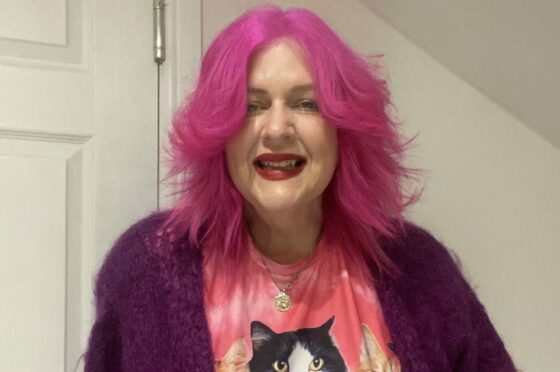
One in two of us will get cancer. With those odds, you’d think we’d be pretty good at talking about it. But we’re not.
Based on my own experience of being diagnosed with tonsil cancer in March 2021, and ahead of World Cancer Day on Saturday, I wanted to share my story to provide some helpful tips on what to say – and what definitely not to say – when someone you know gets a cancer diagnosis.
Being told you have cancer is difficult enough. Even if the prognosis is good, as it was in my case, your brain goes into overdrive. It’s almost paralysing, and just getting to the diagnosis itself is exhausting – round after round of scans, appointments, tests, sleepless nights, days filled with worry and fear. Then comes treatment, and managing life as best – and as normally – as you can, with cancer in the mix.
But if you chose to tell friends and family, be prepared for the difficult challenge of dealing with their emotional needs, too – and the sometimes clumsy way your loved ones will approach your new “cancer patient” status.
Despite meaning well, most will say something at some point that irritates you, or leaves you speechless. Or both. Some might stop seeing you as a person, and only see the cancer.
This happened with a friend of mine who developed what I can only describe as “cancer Tourette’s”.
It got so bad I had to stop seeing her. Every conversation was about cancer – all the people she knew who currently had cancer, those who had recovered, and yep, those who had died.
It’s not that I didn’t care. But when you have cancer, the last thing you want is to be bombarded with cancer tales of woe, particularly about people you don’t even know. And this continues post-treatment, and into remission, I’m 16 months in remission, with check-ups every three months. I have some infuriating long-term side effects to deal with – lack of saliva, and swallowing issues thanks to the radiotherapy scarring, kidney issues and neuropathy thanks to the chemo. I’m feeling good most of the time. Mentally, it is an ongoing challenge.
When you have had cancer, you will never be free of the fear of it. When people I know are diagnosed, of course I want to know, and am there for them if I can be. But I’m not interested in your second cousin twice removed’s aunt, or the guy down the local chippy. Other people’s cancer is a trigger I can do without.
Be mindful of your body language as well. Don’t develop a Princess Diana-style cock of the head.
Pity is exactly what we don’t want. In fact, just don’t do any of the stuff royals visiting the sick might do – touch our hands lightly, pat us on the head, smile sweetly, or give us THAT look.
Just because I’d had my neck cut open, leaving a 10cm wound stapled together, I didn’t lose my personality, or my sense of humour. I know I looked ready-made for Halloween. Treat the person in your life with cancer exactly how you treated them pre-diagnosis.
Don’t say, “Be strong”, “You can beat this”, “I know you’ll kick cancer’s a**”. It’s not a battle or a war. Some inner strength goes a long way, but it’s the modern science that is beating this, not me.
Around day 28 of 30 radiotherapy sessions, post-surgery, one chemo session down (an acute kidney injury thanks to that), no taste, no ability to eat because of a burned throat, constant vomiting, no hope of sleep and no energy to even stand in the shower, I was being as strong as I possibly could – I didn’t need telling. Positive encouragement is great, but sometimes I was too sick to even hear it.
Don’t say, “If there’s anything I can do…”, because I have loads you could do, but how do I know what help you can actually give? And I have enough to think about without having to decipher what you might mean by your vague offer. Specifics please! “Can I take you to radiotherapy to give hubby a break?” was a friend’s offer that we jumped at.
Offers of food for said husband were also gratefully received. “Can I pick the kids up?”, “Can I sort out the shopping for you?” are other excellent proactive examples.
Don’t offer medical opinions or advice, particularly of the alternative variety. What worked for your auntie’s breast cancer treatment side effects, probably won’t work for me. And we all know chemo isn’t great for the body – but I’m pretty sure if herbal tinctures or reiki were cures, we’d be prescribed them. Everyone has a different cancer journey. Don’t force other people’s on us, please.
And despite all of this, the worst thing to say is probably nothing at all. Don’t be that person. If your friend or family member has cancer, check in with them, even if it’s no more than a love heart emoji if you really don’t know what to say.
Knowing that people care and are there for you at this horrible time is the main thing. I can look back now and forgive all the difficult moments and stupid comments, because my friends and family were there.
But just be mindful of the conversation!

Enjoy the convenience of having The Sunday Post delivered as a digital ePaper straight to your smartphone, tablet or computer.
Subscribe for only £5.49 a month and enjoy all the benefits of the printed paper as a digital replica.
Subscribe © SYSTEM
© SYSTEM